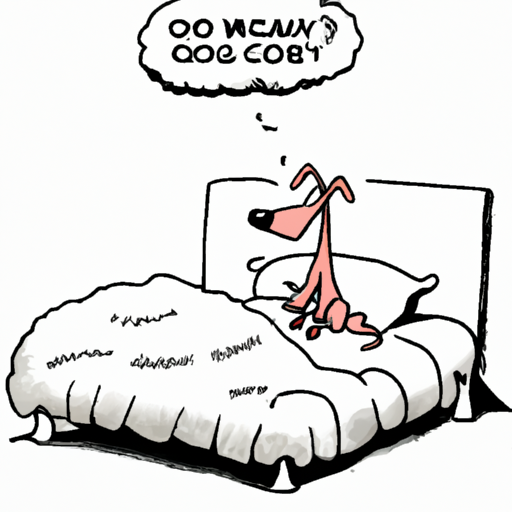Have you ever wondered why dogs scratch your bed? One moment, they’re calm and collected, and the next, they’re wildly clawing at your sheets. It’s a common sight for dog owners, and it leaves many puzzled and slightly frustrated. But there’s more to this behavior than meets the eye. Let’s delve into exploring the reasons behind this peculiar canine behavior.
Table of Contents
- Territory Marking
- Seeking Comfort
- Hunting and Nesting Instincts
- Anxiety and Stress
- Health Issues
- Frequently Asked Questions
Key Takeaways
- Dogs scratch the bed due to a variety of reasons including marking territory, seeking comfort, and instinctual behavior.
- Canine anxiety and health issues can also lead to bed scratching.
- Understanding your dog’s behavior can help in dealing with this issue.
Territory Marking
The act of scratching can often be a dog’s way of leaving their scent and marking their territory. Dogs have scent glands in their paws, which leave behind an odor invisible to humans, but very noticeable to other dogs. This behavior is deeply ingrained in their instincts, even if they’re the only dog in the house. It’s their way of saying, “This is my space!”
Seeking Comfort
Just as humans fluff their pillows and arrange their blankets, dogs also have a unique way of making their sleeping spot comfortable. Scratching helps them to smooth out the area and get it just right before they settle down for a nap. Dr. Stephanie Austin explains this behavior as a way for dogs to create a “nest” or a comfortable sleeping area.
Hunting and Nesting Instincts
Wild dogs and wolves often scratch and dig at the ground to uncover potential threats like snakes or bugs before they lie down. It’s also a way to nest — to create a warm, cozy spot in the cold or a cool area in the heat. Although your domestic dog doesn’t need to worry about such threats in your home, this instinctual behavior persists. You can read more about these instincts on this interesting article about dog behaviors.
Anxiety and Stress
Sometimes, dogs scratching at the bed can be a sign of anxiety or stress. Changes in the environment, separation anxiety, or fear can cause your dog to scratch or dig as a way to cope. If you notice excessive scratching along with other signs of distress, it may be time to consult a vet or professional dog trainer. This guide can help you understand and manage canine anxiety.
Health Issues
While not as common, persistent scratching can indicate underlying health issues. Parasites, skin conditions, or allergies can cause discomfort, leading your dog to scratch at everything, including your bed. If you notice any changes in your dog’s behavior or physical condition, it’s best to consult with a vet immediately. For more information on common dog health issues, check out this informative page.
Frequently Asked Questions
1. How can I stop my dog from scratching my bed?
Take note of when and why your dog is scratching. If it’s a comfort factor, providing a dog bed or blanket might help. If anxiety is causing the behavior, seek professional advice. Regular exercise and mental stimulation can also reduce anxious behaviors.
2. Is bed scratching harmful to my dog?
Typically, no. However, if you notice redness, bleeding, or other signs of injury, consult your vet. Also, if your dog is damaging its bed or your bed, you might want to consider durable bedding options.
3. Why does my dog scratch my bed before lying down?
This is a nesting behavior. Your dog is trying to create a comfortable place to rest.
Understanding your dog’s behavior can bring you one step closer to building a stronger bond with your furry friend. Whether it’s marking territory, seeking comfort, or acting on instinct, remember that bed scratching is natural for them. However, if you suspect anxiety or a health issue, don’t hesitate to seek professional help.
No one knows your dog better than you do. Trust your instincts, show patience, and provide love and care. Your dog’s well-being is in your hands.



